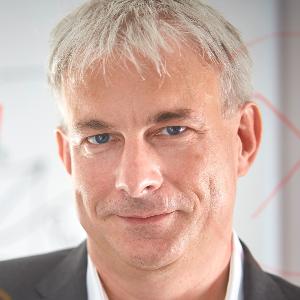Prof. Dr. Stephan Hartmann
Lehrstuhlinhaber, Co-Leitung des MCMP
Lehrstuhl für Wissenschaftstheorie, MCMP
Sprechstunde:
Dienstag, 16 - 17 Uhr
Postanschrift:
Geschwister-Scholl-Platz 1
80539 München

Lehrstuhlinhaber, Co-Leitung des MCMP
Lehrstuhl für Wissenschaftstheorie, MCMP
Sprechstunde:
Dienstag, 16 - 17 Uhr
Postanschrift:
Geschwister-Scholl-Platz 1
80539 München

Stephan Hartmann ist Inhaber des Lehrstuhls für Wissenschaftstheorie, Co-Direktor des Munich Center for Mathematical Philosophy (MCMP) und Dekan der Fakultät für Philosophie, Wissenschaftstheorie und Religionswissenschaft. Darüber hinaus ist er kooptiertes Mitglied der Fakultät für Psychologie und Pädagogik. Er forscht und lehrt zu Fragen aus der allgemeinen Wissenschaftstheorie, der Philosophie der Physik, der formale Erkenntnis- und Wissenschaftstheorie, der sozialen Erkenntnistheorie und der (Bayesianische) Kognitionswissenschaft. Seine aktuellen Forschungsinteressen umfassen die Philosophie offener Quantensysteme, die Philosophie und Psychologie des Schließens und Argumentierens und Modelle der Deliberation.
Laufende Drittmittelprojekte:
Die aktuellen Lehrveranstaltungen von Prof. Hartmann finden sich im LSF System.
Falls Sie eine Abschlussarbeit (BA oder MA) bei Prof. Hartmann anfertigen möchten, kontaktieren Sie ihn bitte per Email mit einigen Sätzen, die das geplante Thema umreißen, zur Vereinbarung eines Termins.
Editorial Boards: Epistemic Studies (de Gruyter, seit 2001), European Journal for Philosophy of Science (2009-2017), European Studies in Philosophy of Science (seit 2013), Minds and Machines (seit 2009), Philosophy Compass (seit 2006), Philosophisches Jahrbuch (seit 2015), Philosophy of Physics (seit 2021), Philosophy of Science (seit 2010), Stanford Encyclopedia of Philosophy (seit 2011), Theory and Decision Library A (seit 2012).